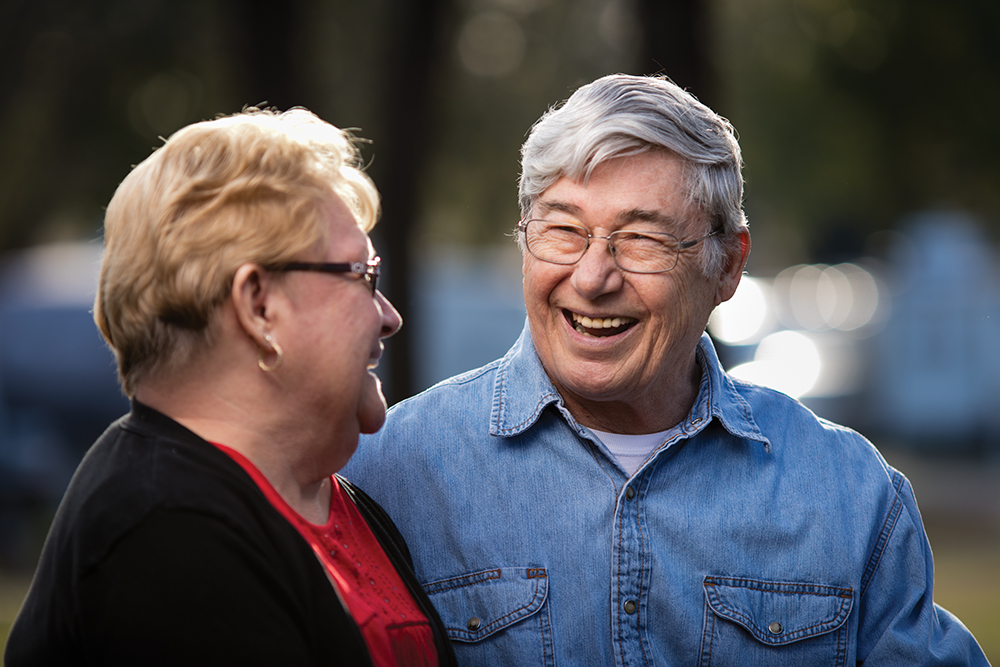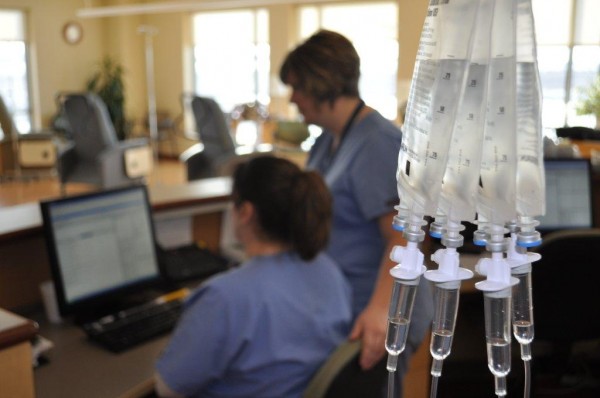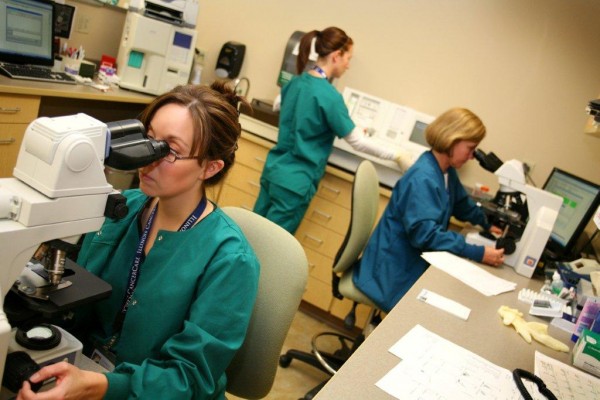New Research Treatment Trials
People facing cancer are living longer, healthier lives as a direct result of clinical trials conducted in the greater Peoria area. In fact, Illinois CancerCare’s Heartland NCORP (NCI Community Oncology Research Program) is one of the nation’s top enrollers in treatment and cancer control trials that seek to prevent cancer or control is incidence. Approximately 6% of eligible patients at Illinois CancerCare were enrolled in clinical trials, compared to the national average of 3%, according to the National Cancer Institute (NCI). Illinois CancerCare is one of only 32 community sites in the nation to receive an NCI Community Oncology Research Program (NCORP) grant. These advanced treatment options allow patients to remain in central Illinois for the best care possible, where they can be surrounded by family and friends.
Although we have received continuous NCI funding for the past 40 years, the level of government support has continued to decline, resulting in a shortfall gap that continues to widen between the level of funding received and the actual cost of operating the research program. Without the support of the Foundation, clinical research opportunities for patients would be reduced. The Foundation is committed to help fund this shortfall so the latest treatments and therapies can continue to be offered to all eligible patients.
The Foundation has committed $400,000 toward the clinical research enterprise in 2019 bringing the total granted to $2,000,000 in the last 5 years. Previous funding to support the shortfall in the clinical cancer research program to accelerate the development of interventions for preventing, treating, recovering from and curing cancer has helped:
- Enroll 201 patients into 30 different NCI funded clinical trials encompassing more than 15 different cancer types.
- Offering more than 80 cooperative group studies to patients.
- Provide four research patient navigators to screen patients daily at our 12 clinic locations for clinical trial opportunities.
- Follow more than 750 patients who have participated in clinical trials prior to 2017.
- Physicians and staff to co-author a number of peer reviewed medical journal articles including the treatment of lung cancer and chronic lymphocytic leukemia, as well treatments for chemotherapy-induced side effects of nausea and vomiting peripheral neuropathy, and hot flashes.
Types of research funded:
- Better ways to monitor cancer treatment
- Better ways to stop tumor progression
- Better ways to reduce the rate of cancer relapse
- Better ways to manage the pain and side effects associated with some types of chemotherapy
- Specialized research equipment such as an ultra-low temperature freezer
- Gas cards for patients enrolled in clinical trials






